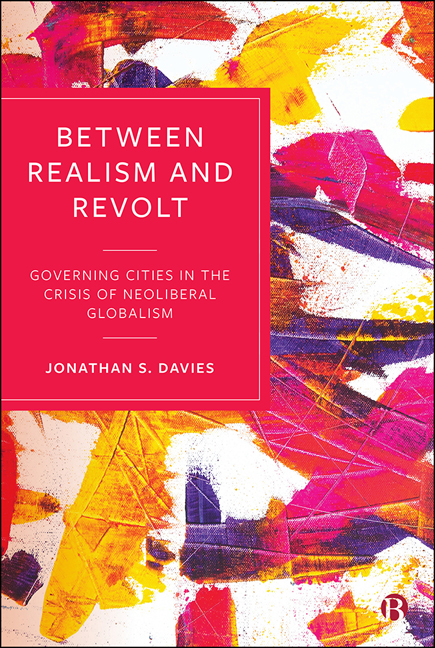Book contents
- Frontmatter
- Dedication
- Contents
- List of Tables
- Contributing Investigators
- Acknowledgements
- Preface
- Introduction
- 1 Studying Urban Political (Dis)Orders
- 2 Dynamics of Crisis, Neoliberalisation and Austerity
- 3 Austerity and State Rescaling
- 4 Consolidating Neoliberal Austerity Regimes
- 5 Regime Divergence and the Limits of Austere Neoliberalism
- 6 Resisting Austerity: Resonant Solidarities and Small Wins
- 7 The ‘Activity of Ruling Groups’: Containment, De-mobilisation and Fragmentation
- 8 Reading the Conjuncture: (Dis)Ordering Dynamics in the Crises of Neoliberal Globalism
- Afterword: Into the Pandemic
- Notes
- References
- Index
8 - Reading the Conjuncture: (Dis)Ordering Dynamics in the Crises of Neoliberal Globalism
Published online by Cambridge University Press: 05 January 2022
- Frontmatter
- Dedication
- Contents
- List of Tables
- Contributing Investigators
- Acknowledgements
- Preface
- Introduction
- 1 Studying Urban Political (Dis)Orders
- 2 Dynamics of Crisis, Neoliberalisation and Austerity
- 3 Austerity and State Rescaling
- 4 Consolidating Neoliberal Austerity Regimes
- 5 Regime Divergence and the Limits of Austere Neoliberalism
- 6 Resisting Austerity: Resonant Solidarities and Small Wins
- 7 The ‘Activity of Ruling Groups’: Containment, De-mobilisation and Fragmentation
- 8 Reading the Conjuncture: (Dis)Ordering Dynamics in the Crises of Neoliberal Globalism
- Afterword: Into the Pandemic
- Notes
- References
- Index
Summary
Introduction
This final chapter reflects on the question of governability, from the standpoint of the mooted interregnum in the hegemony of neoliberal globalism. It first recapitulates the positioning of each city in relation to austere neoliberalism and the urban political (dis)orderings disclosed by the research. The remainder of the chapter discusses five politicaleconomic characteristics of the post-GEC conjuncture, interwoven unevenly through the eight case studies: pervasive economic rationalism(s) (Chapter 2), weakening hegemony (Chapters 4 and 5), the retreat to dominance (Chapters 3, 4 and 5), weak counter-hegemony and politicisation through radically contagious struggles (Chapters 6 and 7). The first three characteristics contribute to explaining the fate of ‘the collaborative moment’ in the age of austerity, and to reviewing the concept of late entrepreneurialism. The fourth and fifth characteristics, weak counter-hegemony and contagious politicisations, capture both powerful resistance dynamics and impediments to more decisive transformations. Weak counter-hegemony suggests that antiausterity, anti-neoliberal and anti-capitalist forces continue to encounter barriers and limitations prevalent in the 20 years since the Battle of Seattle (Bornstein, 2009), while politicisation dynamics, arising from and further weakening hegemony, are signified by combustibility and tendencies towards generalisation and internationalisation through nodal struggles against austerity.
Urban regime characteristics and governability
It will not surprise readers familiar with the processual, variegated, hybridised and contested character of (de)neoliberalisation to learn that austerity is governed, resisted, averted, rejected and deflected in a multitude of ways that only reinforce the importance of urban research into multi-scalar governing configurations. Appreciations of urban history and tradition, locality, place and region are required to make sense of patterns, similarities and divergences. The form and impact of the 2008 crisis varied in kind and tempo, as did political construals of the period. Some characteristics resonated, with differing tonalities, in all the cities most notably the ubiquity of economic rationalism(s) (Henderson et al, 2020). The retreat to dominance and weakening hegemony were also prominent features in most of the cities. Other characteristics were unique, and most of the cities can be positioned as outliers from a certain perspective: for example, Barcelona as a new municipalist regime, Greater Dandenong in largely escaping the GEC and austerity or Nantes in its ‘Keynesian’ positioning.
- Type
- Chapter
- Information
- Between Realism and RevoltGoverning Cities in the Crisis of Neoliberal Globalism, pp. 179 - 206Publisher: Bristol University PressPrint publication year: 2021

